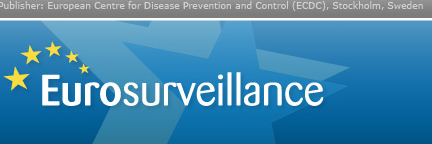 Eurosurveillance is investigating potential problems with study on the deadly breakout of Middle East respiratory syndrome coronavirus (MERS-CoV) in South Korea. The notice was issued after the journal discovered that study data might have been used without permission.
Eurosurveillance is investigating potential problems with study on the deadly breakout of Middle East respiratory syndrome coronavirus (MERS-CoV) in South Korea. The notice was issued after the journal discovered that study data might have been used without permission.
“Epidemiological investigation of MERS-CoV spread in a single hospital in South Korea, May to June 2015,” was published last month by a group of researchers at the Gyeonggi Infectious Disease Control Center in Korea, and details 37 cases of people at one hospital, one portion of the nearly 200 who’ve developed the new respiratory infection since the outbreak began. The researchers tracked the path of infection from one initial patient to 25 secondary cases, who then infected 11 additional people. As the researchers note:
Initially, information on the travel history of the primary case was missing, and since MERS had not been encountered in South Korea before, this medium-scale local hospital was unaware of the MERS-CoV infection in progress until 3 days after the primary case was discharged. Thus isolation and protection measures were delayed; this, in combination with other environmental factors (e.g. relative/healthcare worker sleeping in the same room with patients, insufficient air-conditioning, moving of patients to other rooms/wards, etc.) and an unexpected high infectivity of patients with rapidly deteriorating pneumonia, resulted in a high number of secondary and tertiary cases.
Experts’ understanding of the spread of MERS is ever-changing, and so is our understanding of this paper. On July 1, the journal published this Expression of Concern:
Expression of concern regarding paper by Park et al, published on 25 June 2015: “Epidemiological investigation of MERS-CoV spread in a single hospital in South Korea, May to June 2015”, Euro Surveill. 2015;20(25):pii=21169.
It has been brought to our attention that some of the authors may not have been informed about the content of the above paper. There is a lack of clarity regarding rights to use the data.
The editorial team are investigating what action needs to be taken.
Editor-in-chief Ines Steffens confirmed the issues with authorship and data use:
Following publication, the editorial team and I were contacted by a third party and shortly hereafter the corresponding author of the article, with requests to ‘Retract’ the article in question. The reasons put forward for the requests were concerns related to authorship and what seemed rights to use the data. After confirming to both parties that we will follow guidance issued by COPE, we consulted with our publisher and associate editors and contacted the corresponding author asking for a clarifying statement by all authors of the article in question before we could decide on next steps. Considering the present public health and scientific interest on the topic (MERS-CoV) and the fact that the resolution of the matter may require some time, we decided to issue an expression of concern. We are in contact with the corresponding author who announced further clarifications in an email to arrive shortly.
Given the complexity of the situation it may nevertheless take more time until the matter will be resolved.
We’ve contacted last author Seon Ju Yi as well as the journal’s publisher, the European Centre for Disease Prevention and Control. We’ll update if we receive a response.
Update: 7/13/15 10:50 a.m. eastern. We’ve received a statement from the journal’s publisher, the European Centre for Disease Prevention and Control. Acting director Andrea Ammon said that they are working closely with the journal and wouldn’t provide any additional details at this time.
We were informed by the editor-in-chief about concerns that had been raised regarding the article by Pak et al. Epidemiological investigation of MERS-CoV spread in a single hospital in South Korea. Euro Surveill. 2015;20(25):pii=21169 and that the Eurosurveillance editorial team would follow up to gain further insight as further clarification is necessary to be able to draw conclusions that would lead to informed action.
We are in close contact and support the editor-in-chief in the resolution of the problem. At this stage we are not in a position to add more information than in her response to you.
Hat tip: Helen Branswell
Like Retraction Watch? Consider supporting our growth. You can also follow us on Twitter, like us on Facebook, add us to your RSS reader, and sign up on our homepage for an email every time there’s a new post. Click here to review our Comments Policy.